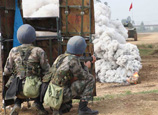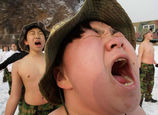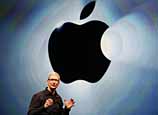
 |
Liu Yuewu, a leading cancer specialist at Peking Union Medical College Hospital, said thyroid cancer must be the fastest growing cancer in recent years, citing clinical experience.
In 1986, the hospital performed surgery eight times for patients with thyroid cancer, according to Liu. The figure increased to 1,125 in 2012.
A survey released last month by the Beijing Institute for Cancer Research showed the incidence of thyroid cancer more than doubled in the Chinese capital during the past decade.
"The trend has also been seen in other countries, like the US and South Korea," Liu said, adding that ever-increasing radiation exposure from widespread use of mobile phones is mainly to blame.
He suggests that integrating thyroid B scans with regular body examinations can help with early detection and treatment.
Chen agrees and is urging decision-makers to greatly increase public awareness and access to cancer screening services. But he also said cost is a concern.
A majority of newly diagnosed cancer cases are already in a late stage, resulting in unsatisfactory treatment results and a higher death rate, he said.
An average of 7,300 people die from cancer on the mainland each day, the report said. Patients older than 60 account for more than 63 percent of the deaths.
Chen said breast, lung and colorectal cancers tend to affect younger people, and suggested people go for cancer screenings after they turn 40.















 This group of photos engrave the "past" left far behind us. For some, we may not even have chance to say goodbye.
This group of photos engrave the "past" left far behind us. For some, we may not even have chance to say goodbye.


![]()
